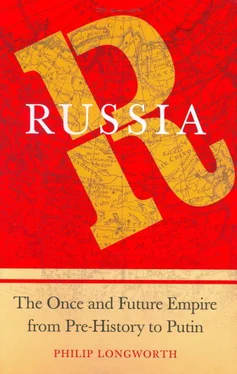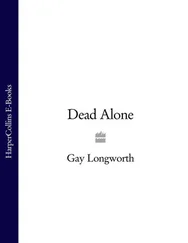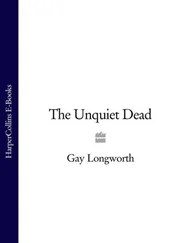He had hoped for an orderly transition from authoritarian Communism in the countries of the Bloc but, except in Bulgaria and Romania, the reformed socialism that he promoted was rejected and, rather than the gradualism which he envisaged, change came in a rush. Gorbachev also intended to maintain the strategic balance in Europe but with excitement at the prospect of reunification running high on both sides of the German divide Chancellor Kohl moved to absorb East Germany and so reunite his country. The United States affected indifference, Britain disliked the idea and so did France; but neither was disposed to invoke its powers under the Four Power Treaty to prevent German reunification. Gorbachev was entitled to send in troops to maintain the divide and might well have received some support from the West had he done so. But he shrank from it. It would have ended the detente with West Germany, which had become a pillar of Soviet foreign policy. So Gorbachev, who might have prevented unification, allowed it to happen, and confined himself to seeking economic concessions from Kohl to help bolster the now tottering Soviet economy. It was a modest price to pay for Soviet complaisance, and a major political triumph for the German leader. 19
So it was that by the end of 1990 the unification of Germany, which had been unimaginable even a year before, became a fact. Concerns emerged in west Germany about the cost of absorbing the east, and in the east about the loss of full employment, the erosion of cultural values in which many East Germans had taken some pride, and the inflow of carpetbaggers. But by then it was too late.
There were to be other disappointments in what had been the outer fringes of the Soviet Empire. In June 1991 COMECON was precipitately wound up, at which regional trade ground almost to a standstill. The new regimes in Poland, Hungary and Czechoslovakia tried to reorient their commerce from the East to the West but failed. The Warsaw Treaty Organization, linchpin of the Bloc’s defences, was also to become a dead letter, allowing the United States to lead its allies towards an eastward expansion of NATO. In Yugoslavia, deteriorating economic conditions were already fostering nationalist breakaway movements in Slovenia and Croatia, setting the country on a slide to dissolution and bloody civil war, while in the Soviet Union itself the unpredictable Boris Yeltsin, who had so recently been excluded from the political arena, contrived to find a new political space for himself by posing as a Russian patriot.
He had argued that if constituent republics of the Soviet Union like Lithuania or Kazakhstan had an autonomous political life it was anomalous that Russia, the Union’s largest constituent by far, should not. Gorbachev could not challenge his logic, and so in March 1990 Yeltsin was able to stand for election to the Supreme Soviet of the Russian Federal Republic. He was elected, and soon chosen to be its chairman. Having created a new political platform, he proceeded to claim sovereignty for Russia and to encourage the Baltic republics and others to claim their independence too. Yeltsin contributed to the dissolution of the Union. But the sharp economic deterioration had given him and the other nationalist politicians their opportunity.
In June 1990 Estonia, one of the more prosperous Soviet republics, proclaimed itself independent in the economic sphere. Lithuania went further, claiming a right to veto all Union legislation, and Uzbekistan, one of the most populous Soviet republics, declared itself sovereign. The once stable Soviet economy was descending into chaos as social distress and inflation rose. Shopping was becoming more and more difficult, necessities of life increasingly expensive, while many employees suddenly lost employment perks and privileges which they had come to take for granted. In August 1990 Gorbachev reacted by setting up a commission of the Supreme Soviet to draft a plan for economic recovery. There were deep divisions of opinion about what should be done, and the argument soon crystallized into a struggle between radical reformers and those who wanted to revert to the old ways. Yeltsin, an instinctive politician, agreed to co-operate. He supported the radicals and was politically helpful to Gorbachev for a time. A 500-day plan for the regeneration of the country, largely the work of an economist called Stanislav Shatalin, was tabled. It called for measures to control inflation, the stabilization of the ruble, the end of price controls, and privatization of the huge state sector.
Similar to the ‘shock therapy’ advocated by the Harvard economist Jeremy Sachs in Poland, it implied a devolution of economic control which was problematical in the Soviet Union as it had not been in Poland. This was not only because it threatened the interests of powerful apparatchiki and to trigger popular discontent, but because the Soviet economy was several times larger than Poland’s as well as more complex, and its geographical spread immense. It demanded some careful co-ordination if it were not to become dysfunctional. Furthermore, the isolation of many enterprises made them as vulnerable as Canadian ‘company towns’, threatening a series of local social disasters if they should suddenly become bankrupt. The plan also threatened the disintegration of the Union. So the weight of opinion began to shift towards the conservatives. Gorbachev sent the Plan back to be redrafted in a less extreme form. This angered those who wanted the speedy implementation of radical reforms, and several ministers resigned. It also bolstered the separatist cause in some republics, especially those adjacent to the West.
Gorbachev, who had failed to grasp one nettle, now reached out to snatch at another: he sanctioned the use of force against the national movement in Lithuania. On 17 March 1991 special units of Soviet forces stormed the television tower in Vilnius, capital of Lithuania, which had been occupied by separatists. There were fifteen fatalities. Intended to be a discreet and bloodless operation which would deter nationalists across the Union, the implementation had been clumsy. Gorbachev moved quickly to disown it; Yeltsin, perhaps afraid that he might be purged or eliminated if the leader’s new ‘hard line’ prevailed, 20called for a ‘declaration of war’ against the Soviet leader. On 28 March he mobilized a large crowd of demonstrators in Moscow in defiance of a ban on demonstrations.
With strikes and calls for his resignation flaring up right across the country, Gorbachev changed tack yet again. He accepted the idea of allowing the constituent republics an autonomy verging on independence, and joined forces with Yeltsin. Seventy per cent of Russian voters who turned out for a referendum on 17 March endorsed the idea of ‘the preservation of the Union of Socialist Republics as a renewed federation of equal sovereign republics in which the rights and freedom of the individual of any nationality will be guaranteed’. 21The contorted language of the document reflected Gorbachev’s disposition to be all things to all men, but it could not quite disguise the contradiction in terms. Nevertheless, on 23 April 1991 representatives of nine constituent republics agreed that there should be a new Union treaty. Four months later it was ready for signing. Meanwhile Yeltsin’s hand had been strengthened further by a substantial victory in the Russian elections held that June.
The same month the Soviet premier, supported by the ministers of Defence and the Interior, went to the Supreme Soviet asking for Gorbachev’s presidential powers to be transferred to them. The country was on the brink of disaster, they argued, and Gorbachev’s inadequate leadership was central to the problem. Retrospect lends some credence to their claims. Nevertheless, the leader once again succeeded in talking his way out of trouble. He said he was working to create a socialism which was both humane and democratic. Vague rather than convincing, he nevertheless persuaded enough members to endorse the idea of another Party congress, to be held in December. At that point, he conceded, the question could be raised of his being constitutionally removed from office.
Читать дальше





![Stephan Orth - Behind Putin's Curtain - Friendships and Misadventures Inside Russia [aka Couchsurfing in Russia]](/books/415210/stephan-orth-behind-putin-s-curtain-friendships-a-thumb.webp)





